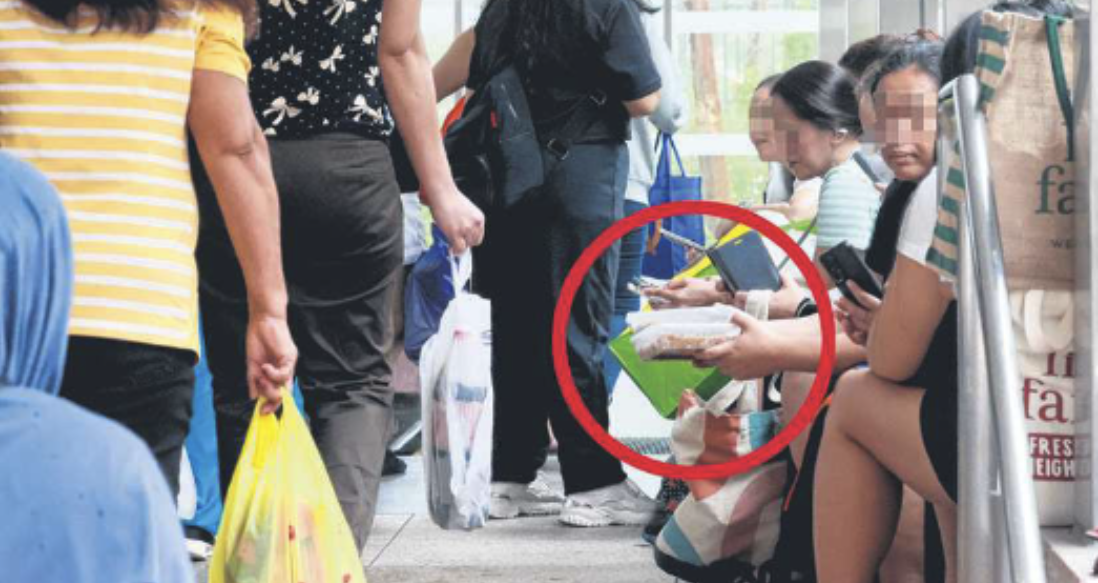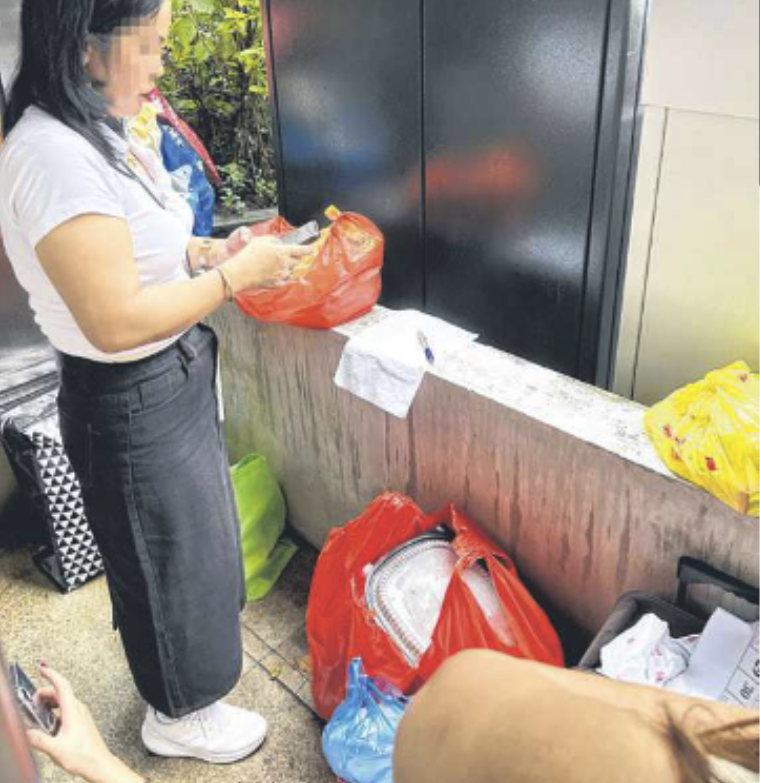Street food stalls may remind you of that weekend trip to Bangkok (where you probably gained a few kilograms from eating non-stop), but it’s definitely not something we typically see in strict Singapore.
However, if you went to Orchard Road on a Sunday, you may be met with a peculiar (for the younger generation) or nostalgic (for uncles and aunties) sight: a group of ladies selling food along the street.
Here’s What Happened
A group of foreign domestic workers (FDWs) was found selling food near Lucky Plaza, sparking much debate.
According to Shin Min Daily News, every Sunday, six FDWs would “set up” their “stall” near the exit of Orchard MRT station.
Two of these FDWs would sit near the escalators, with three to four bags containing boxes of homemade food at their feet. Roughly every 10 minutes, a customer would purchase a box of the food from them.

The other four of the FDWs would manage a makeshift stall at the bus stop, with boxes of their food laid out on the low wall nearby and on one of the bus stop seats, while they chatted amongst themselves or with customers. They would take down any orders using pen and paper.

Shin Min observed that the 50 or so boxes were sold out very quickly, within three hours.

One of the sellers who was interviewed by Shin Min shared that they were Filipino domestic workers, who would prepare traditional filipino foods during their free time at home, and sell them for some extra income.

The food products they sell include rice vermicelli (Bee Hoon), rice cakes, and other snacks. Each box is sold at a price of S$5.
Another one of the sellers also shared that they take pre-orders and offer food catering services for gatherings when requested by customers.
Debate Over This Sight
Working on the only off-day they have–my “sleepaholic” self could never.
While the hustle of these FDWs is somewhat respectable, their actions have sparked much debate and criticism.
Employees at nearby licensed stores selling similar food (traditional Filipino food) expressed their discontent with the actions of these FDWs, as they did not need to pay rental costs, and were unfairly competing for business.
One employee shared in an interview with Shin Min that “ever since they (the FDW sellers) came, (their) business has gone down by 20 to 30 per cent”.
Mr Zhang, a retiree interviewed by Shin Min, also expressed his concerns over food safety, stating that “home-cooked food may not adhere to food safety requirements. If you fall sick from it, there’s nowhere to lodge a complaint.”
SFA’s Response
Responding to enquiries made by The New Paper, the Singapore Food Agency (SFA), has said that the matter is under investigation and they will take enforcement action against those caught selling food products in public spaces without a valid license.
Offenders who sell any food that is not cooked or prepared in an SFA-licensed premises may be given a fine of up to S$2000.




